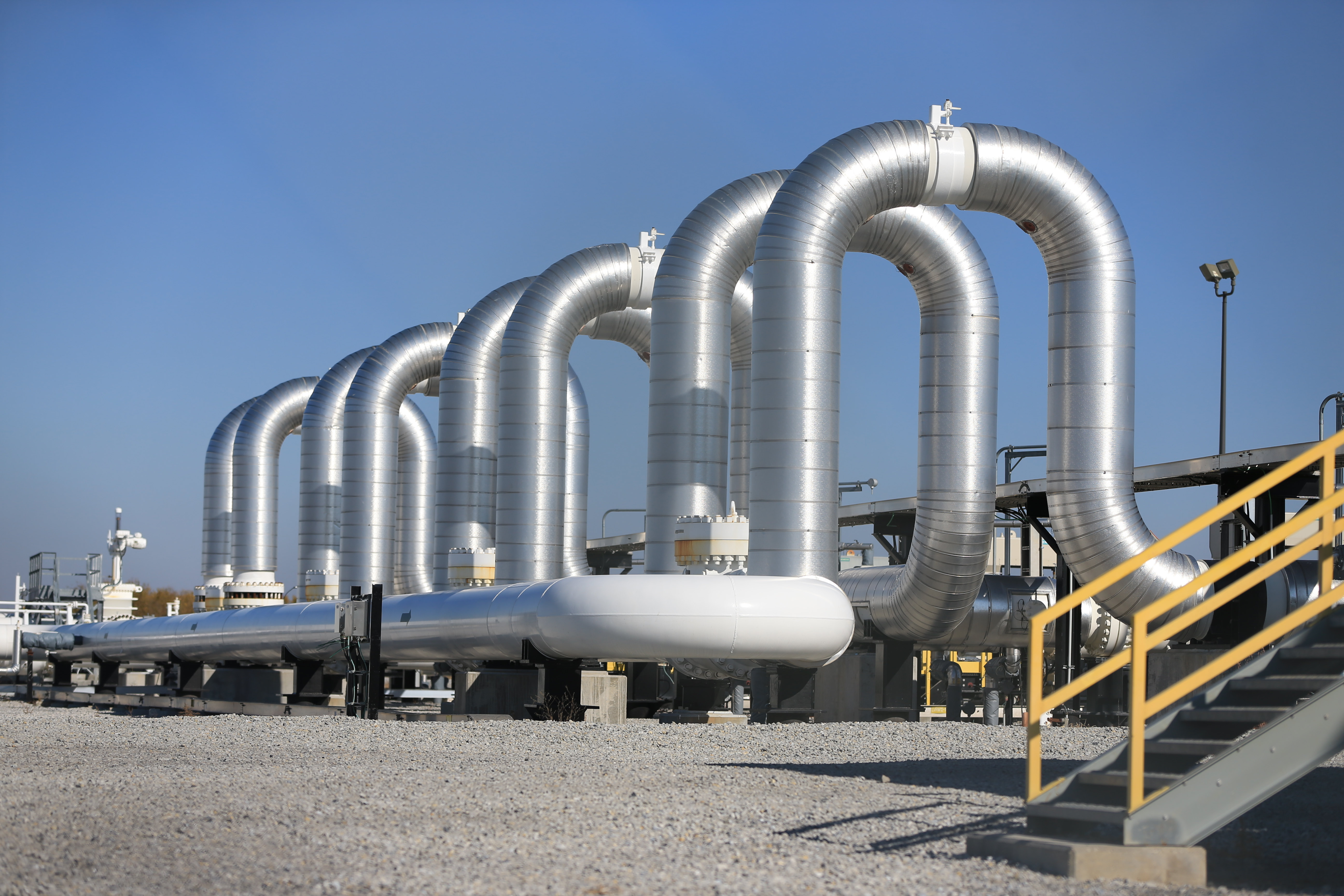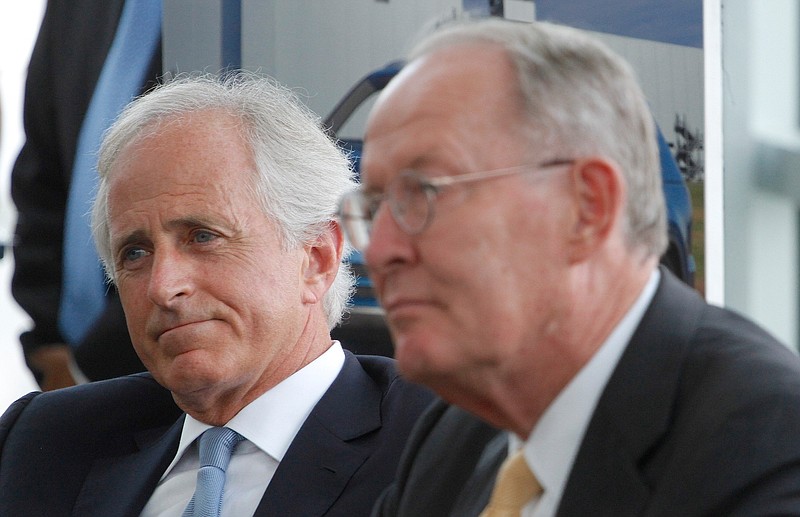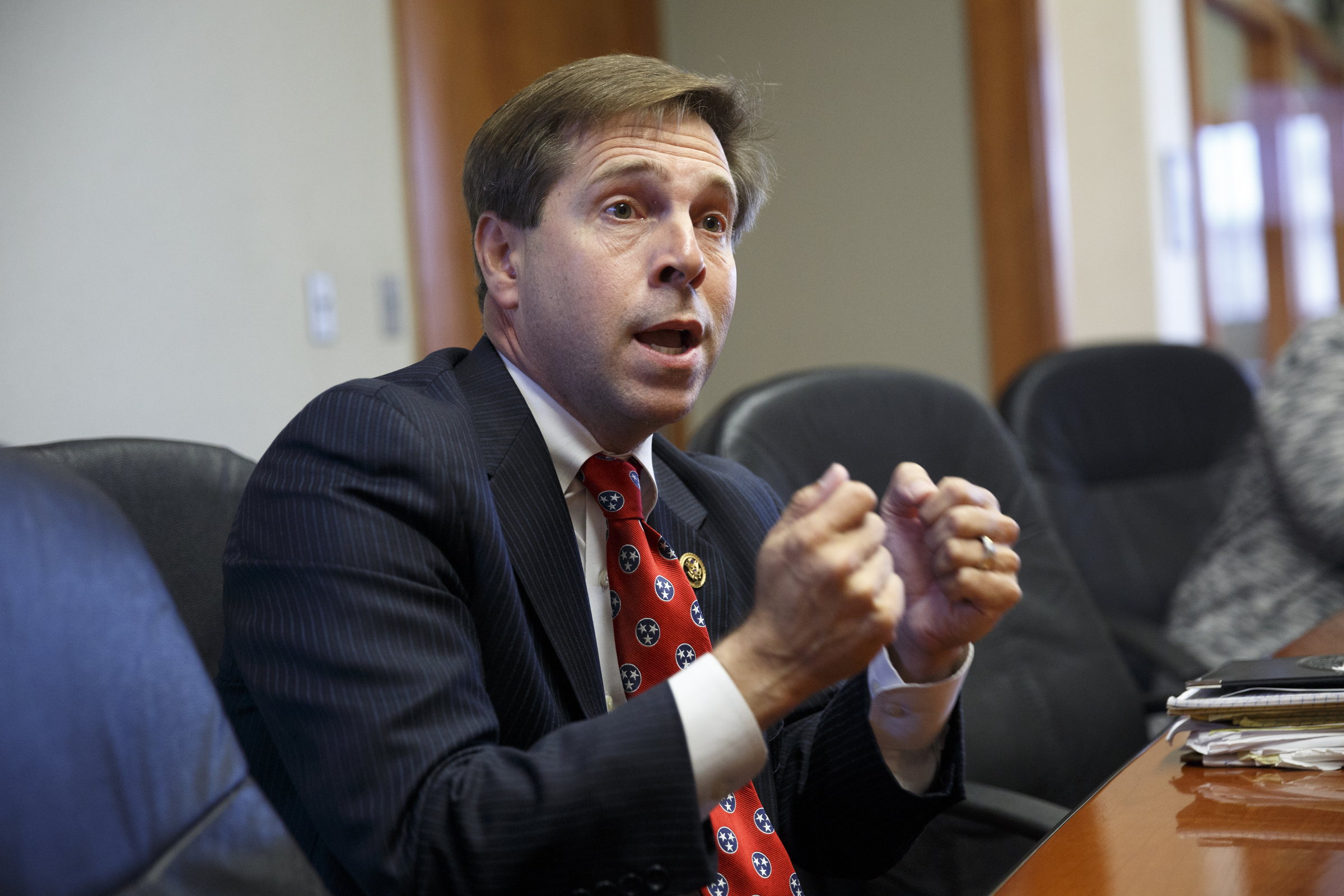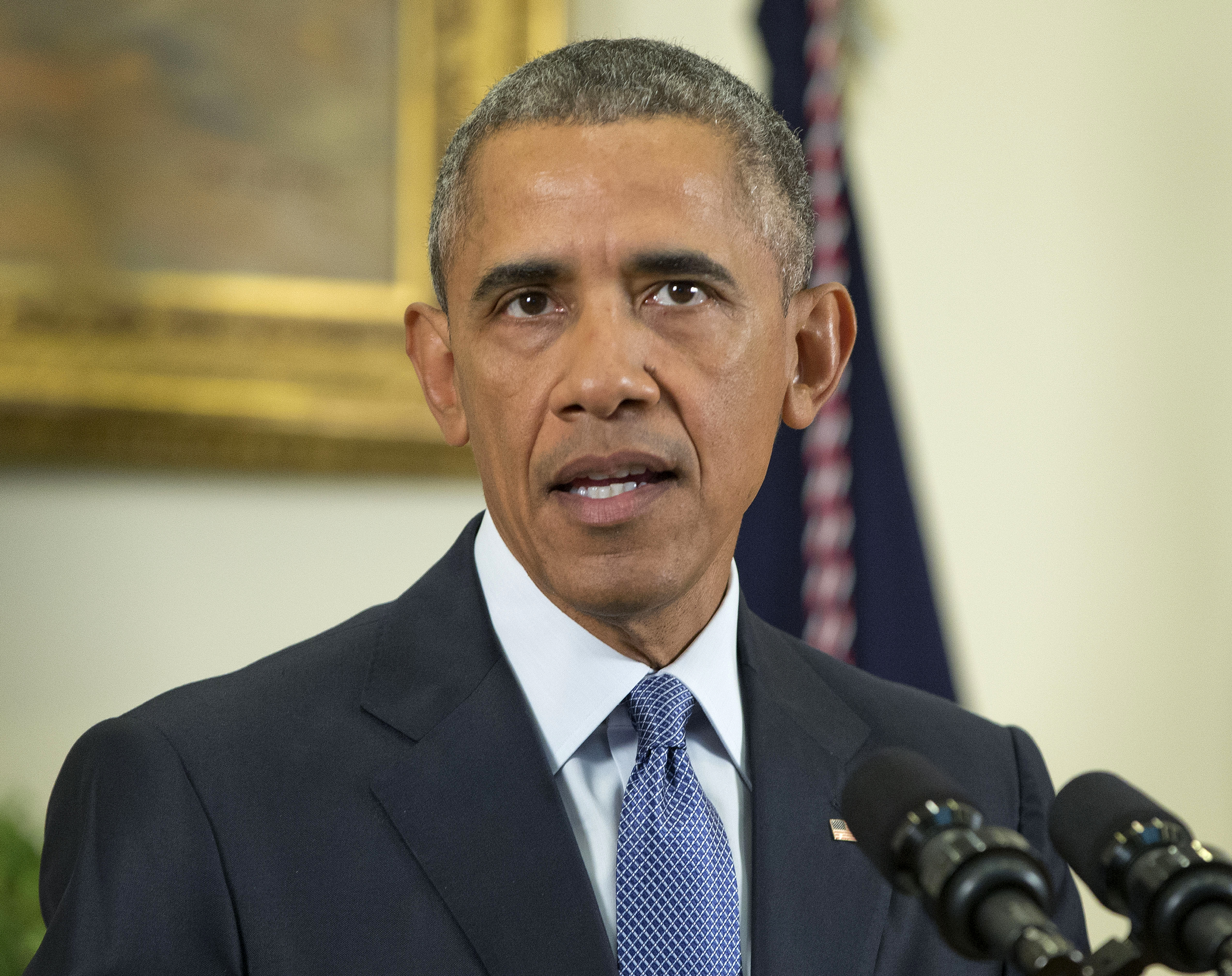 In this Nov. 3, 2015, photo, the Keystone Steele City pumping station, into which the planned Keystone XL pipeline is to connect to, is seen in Steele City, Neb. The Obama administration says Nov. 4, it is continuing a review of the proposed Keystone XL oil pipeline, despite a request by the project's developer to suspend the review. (AP Photo/Nati Harnik)
In this Nov. 3, 2015, photo, the Keystone Steele City pumping station, into which the planned Keystone XL pipeline is to connect to, is seen in Steele City, Neb. The Obama administration says Nov. 4, it is continuing a review of the proposed Keystone XL oil pipeline, despite a request by the project's developer to suspend the review. (AP Photo/Nati Harnik) U.S. Sen. Bob Corker, R-Tenn, U.S. Sen. Lamar Alexander, R-Tenn, and U.S. Rep Chuck Fleischmann, R-Tenn, blasted President Barrack Obama for his final rejection of the Keystone XL pipeline, a 1,179-mile project that would have transported oil by pipe from Canada to be refined in the U.S.
Though supporters said the pipeline would have kept petroleum off of roads and rails and created tens of thousands of jobs, environmentalists opposed it as a symbol of the country's dependence on oil, decrying its ties to Canada's controversial oil sands. The pipeline has been in limbo for 7 years, during which time it took on symbolic value for both environmentalists and energy advocates.
Corker said Obama's move "defies logic and reflects a decision to put politics ahead of our economy and a rational approach to energy."
"Multiple reviews by the State Department have said there will be no significant environmental impact when considering alternative methods of transporting the oil," Corker said. "I am disappointed the president has denied a project that would have generated economic growth and advanced our nation's energy security."
Alexander also expressed disappointed by a decision he termed "misguided."
"There is no reason whatsoever not to approve the Keystone XL Pipeline," Alexander said in an emailed statement. "The president's own state department's 'Final Supplemental Environmental Impact Statement' of Jan. 2014 said building the pipeline would not significantly affect the environment, and the pipeline would have created thousands of jobs for American workers and put our country one step closer to energy independence."
Fleischmann charged Obama with putting politics above "jobs and energy security.
"The pipeline had bipartisan support and had been proven environmentally safe by the State Department," Fleischmann said. " With this decision President Obama is not only snubbing our largest trading partner and energy supplier but he is also turning his back on at least 40,000 good paying jobs."
The pipeline's backers are expected to challenge his decision in court, and the Republican-controlled Congress may try to override the president, although those efforts have previously failed. The project could also get a fresh look in 2017 if a Republican wins the White House and invites TransCanada to reapply, the Associated Press reported.
TransCanada, an Alberta-based company with an expensive North American footprint, first applied for Keystone permits in September 2008 - shortly before Obama was elected. As envisioned,Keystone would snake from Canada's tar sands through Montana, South Dakota and Nebraska, then connect with existing pipelines to carry more than 800,000 barrels of crude oil a day to specialized refineries along the Texas Gulf Coast.
Democrats and environmental groups latched onto Keystone as emblematic of the type of dirty fossil fuels that must be phased out. Opponents chained themselves to construction equipment and the White House fence in protest, arguing that building the pipeline would be antithetical to Obama's call for cutting greenhouse gas emissions.
But Republicans, Canadian politicians and the energy industry touted what they said were profound economic benefits - thousands of U.S. construction jobs and billions injected into the economy. They argued transporting crude by pipeline would be safer than alternatives like rail, and charged Obama with hypocrisy for complaining about the lack of investment in U.S. infrastructure while obstructing an $8 billion project.



